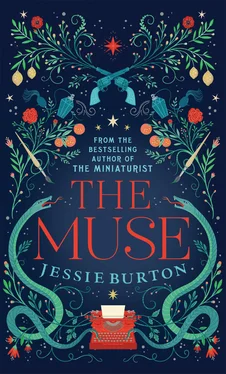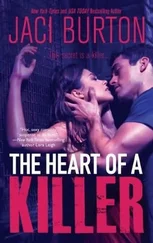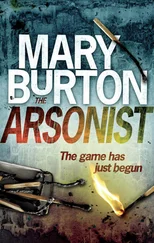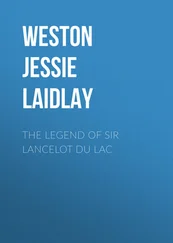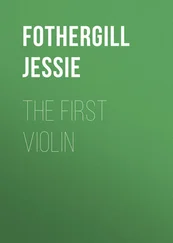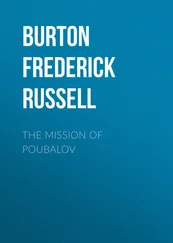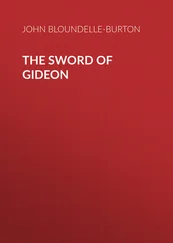Despite the slight distortion from the orange street lamp above us, the colours of the lower background reminded me of a Renaissance court portrait — that piled-up patchwork of fields all kinds of yellow and green, and what looked like a small white castle. The sky above was darker and less decorous; there was something nightmarish about its bruised indigoes. The painting gave me an immediate feeling of opposites — the girls against the lion, together in the face of its adversity. But there was a rewarding delicacy beyond its beautiful palette of colours — an elusive element that made it so alluring.
‘What do you think?’ asked Lawrie. His face seemed softer out of the glare of the kitchen light.
‘Me? I’m just the typist,’ I said.
‘Oh, come on. I heard that poem. Make a poem of this.’
‘It doesn’t work like that—’ I began, before I realized he was teasing me. I felt embarrassed, so I turned back to the painting. ‘It’s very unusual, I suppose. The colours, the subject matter. I wonder when it was painted? Could be last week, or last century.’
‘Or even earlier,’ he said eagerly.
I looked again at the old-fashioned fields in the background and then at the figures. ‘I don’t think so. The girl’s dress and cardigan — it’s more recent.’
‘Do you think that’s gold leaf?’ Lawrie bent down and pointed to the lion’s mane, the flowing strands which seemed to glint. His head was very close to mine and I could smell his skin, a trace of aftershave that gave me goosebumps.
‘Odelle?’ he said.
‘It’s not your usual painting,’ I replied hastily, as if I knew what a usual painting was. I straightened up. ‘Mr Scott, what are you going to do with it?’
He turned to me and smiled. The orange light caught the planes of his face and covered him in ghoulish shadow. ‘I like it when you call me Mr Scott.’
‘In that case, I’m going to call you Lawrie.’
He laughed, and my jaw tingled, threatening a smile. ‘I don’t think this was done by an amateur,’ I said. ‘What did your mother know about it?’
‘No idea. And all I know is, she took it with her wherever she went. At home, it was always in her bedroom. She didn’t like it in the public rooms.’
I pointed to the initials on the bottom right of the painting. ‘Who’s I.R.?’
Lawrie shrugged. ‘Not my forte.’
I wondered what Lawrie’s forte was, and whether I would ever find out, and why did I want to — and was that the reason I was feeling so odd?
In case he could read my thoughts, I bent my head down again towards the girl in the painting. She was wearing a light-blue dress with a dark woollen cardigan — you could even see the cable knit. The head she was carrying had a long dark plait, which snaked unsettlingly out of her cradled arms, towards the red earth floor. The strange thing was, even though she had no body, the floating girl didn’t seem dead at all. She was inviting me in, but there was a note of caution in her eyes. Neither figure was exactly beaming in welcome. They both seemed oblivious to the lion, which may or may not have been waiting for the kill.
‘I have to go,’ I said, pushing the painting away into his surprised hands. Lawrie, the party, the poem, the Dubonnet, Cynth’s marriage, the painting; suddenly I wanted to be alone.
Lawrie took the painting from me and closed the boot. He looked down at me, his head cocked to one side again. ‘Are you all right? Do you want me to walk you back in?’
‘Yes,’ I said. ‘I mean, no. I’m fine. Thank you. Sorry. It was a pleasure to meet you. Good luck.’ I turned away and made it to the entrance of the block of flats, before he called out to me.
‘Hey, Odelle.’ I looked back to see him jam his hands into the pockets of his leather jacket, hunching his shoulders again. ‘I — you know — that really was a good poem.’
‘It always takes longer than you think, Mr Scott,’ I said. He laughed, and I smiled properly then, nevertheless relieved to be out of the street lamp’s glow.
When I was growing up, my mother and I would always eat lunch with Cynth’s family on Sundays. Four in the afternoon, a big pot on the hob, everyone coming in and out and dipping for themselves — and once the meal was done, we’d draw our chairs up to the radio at seven thirty and listen to the BBC’s Caribbean Voices , the only broadcast that mattered if you dreamed of being a writer.
Here’s the mad thing: poets from Barbados, Trini, Jamaica, Grenada, Antigua — any part of the British Caribbean — would send their stories all the way to Bush House on London’s Aldwych, in order to hear them read back again in their homes, thousands of miles across the Atlantic Ocean. There seemed no local facility to enable these stories to be processed, a fact which impressed upon me at a very young age that in order to be a writer, I would require the motherland’s seal of approval, the imperial sanction that my words were broadcastable.
The majority of the work was by men, but I would listen enraptured by the words and voices of Una Marson, Gladys Lindo, Constance Hollar — and Cynth would pipe up, ‘One day you be read out, Delly’ — and her little shining face, her bunches, she always made me feel like it was true. Seven years old, and she was the only one who ever told me to keep going. By 1960 that programme had stopped, and I came to England two years later with no idea what to do with my stories. Life at the shoe shop took over, so I only wrote in private, and Cynth, who must have seen the piles of notebooks which never left my bedroom, simply stopped her pestering.
She and Sam had found a flat to rent in Queen’s Park, and she’d transferred to a north London branch of Dolcis. Up to that point, I’d never really known loneliness. I’d always had my books, and Cynth had always been there. Suddenly, my thoughts were enormous in that tiny flat, because there was nobody to hear them and make them manageable, nobody cajoling or supporting me, or holding out their arms for a hug. Cynth’s absence became physical to me. Do you have a body if no one is there to touch it? I suppose you do, but sometimes it felt like I didn’t. I was just a mind, floating around the rooms. How badly prepared I’d been for the echo and clunk of my key in the lock, the lack of her sizzling frying pan, my solitary toothbrush, the silence where once she hummed her favourite songs.
When you saw a person every day — a person you liked, a person who lifted you up — you thought you were your best self, without trying very hard. Now, I saw myself as barely interesting, not so clever. No one wanted to hear my poems except Cynth, no one cared or understood where I was from like she did. I didn’t know how to be Odelle without Cynth to make me so. Cynth had done so much for me, but because she was gone, I still managed to resent her.
Her work commitments and mine meant we were only meeting once a fortnight, in the Lyon’s on Craven Street round the corner from the Skelton. I barely credited Cynth for the fact it was she who always arranged it.
At the counter, the waitress had slopped our cups so the liquid had spilled onto the saucer, and the bun I’d asked for was the most squashed. When I asked for a replacement saucer, the waitress ignored me, and when I paid for it, she wouldn’t put the change in my hand. She placed the money on the counter and pushed it over, not looking at my face. I turned to Cynth, and saw a familiar expression. We walked to find a spare table, as far away from the counter as we could.
‘How is it at the work?’ she asked. ‘You still trailin’ after that Marjorie Quick?
‘She meh boss, Cynthia.’
‘So you say.’
Читать дальше
